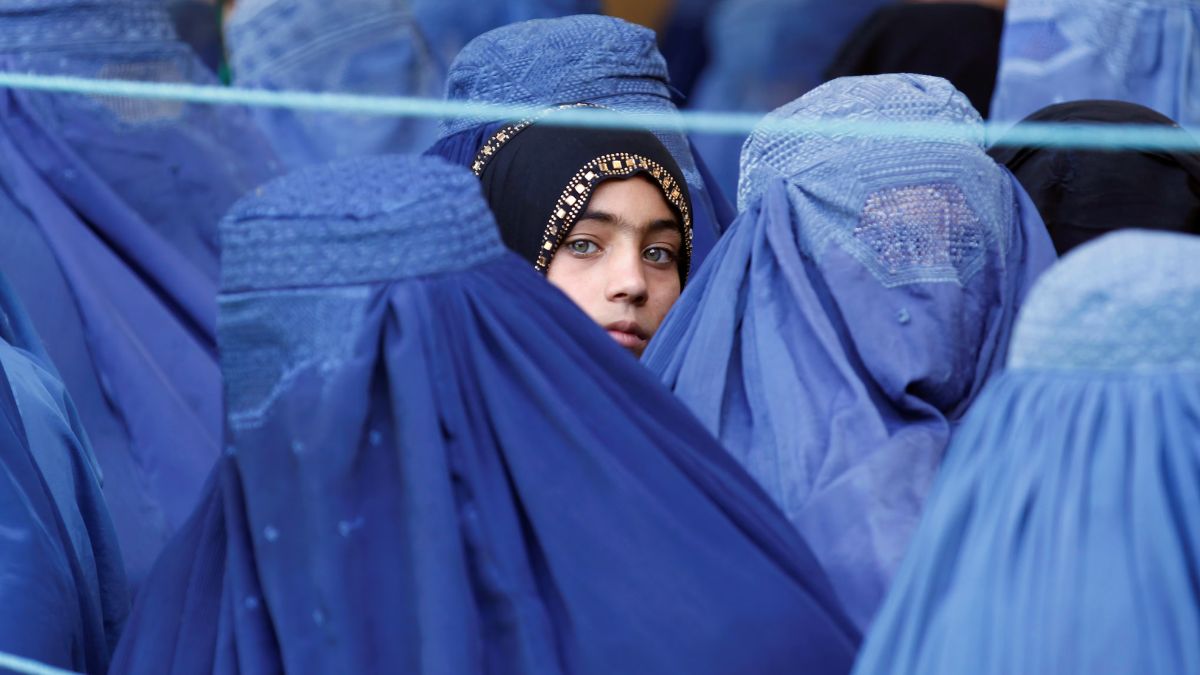

Persecuted Christian Women Around the World
What if marching for women’s rights meant for the persecuted instead of for abortion?
05/1/25
John Stonestreet and Timothy D Padgett

Back in February, the persecution watchdog organization International Christian Concern reported on a group of Iranian Christian women who had crossed the southern border into the United States. After seeking asylum as victims of religious persecution, they were deported to Panama. After a brief detainment, the women were released with permission to stay in the country for up to 90 days. Unless their pleas for sanctuary are granted there, they could end up back in Iran, facing the harsh punishment of the Islamist regime.
Artemis Ghasemzadeh became the face of the group. She became a Christian in 2019 after a brief trip to Turkey. As the New York Times described,
Converting was colossally risky. While Christians born into the faith are free to practice, Iran’s Shariah laws state that abandoning Islam for another religion is considered blasphemy, punishable by death. Some members of her Bible-study group were arrested.
Also, some Afghan women, who were deported with Ghasemzadeh, could end up back in the hands of the Taliban. As she noted in a statement,
There are also Afghan girls here who have been separated from their siblings. They are terrified of what will happen if they are deported into the hands of the Taliban. They say that if they send us back, it will be our execution order, already signed.
Ghasemzadeh insists that she and her fellow escapees need not be placed in the U.S. but are simply terrified of being sent back to their respective anti-freedom, anti-woman homelands. In addition to Iran’s draconian conversion laws, the Taliban in Afghanistan issued an edict last month to resume stoning women to death for adultery. There, “adultery” may mean accidentally glancing at a man not related to family.
Alison Davidian is a United Nations representative who has tracked the plight of women and girls in Afghanistan since the Taliban took over the country in 2021. “To give some context,” Davidian said, “three years ago an Afghan women could technically decide to run for president. Now, she may not even be able to decide when to go and buy groceries.”
Daily life for Christians, especially Christian women, is just as treacherous in other parts of the Middle East. Sexual assault, domestic abuse, abduction, and death threats are tools used by persecutors to cripple the local church. Open Doors, another group that tracks Christian persecution explained,
Without warning, groups of women can suddenly be abducted in extremist attacks on their communities, as well as individually in covert kidnappings. These abductions are devastating for the individuals affected, and such tactics are commonly used as a weapon against Christian communities.
Western advocates for women’s rights typically protest and march, at times by the hundreds of thousands, for abortion rights. Few are willing to take to the streets for oppressed Christian women around the world. Many conservatives are fearful of giving up any ground on immigration policy, as if to do so is the same as promoting open borders. To be fair, the stories of immigrant crime—especially out of Europe—are unsettling, to say the least. As Rod Dreher recently quipped, the Turks who failed to take Vienna centuries ago can laugh today since some 41% of school kids in that city are now Muslim.
Still, we must stand up for persecuted Christians around the world, especially in the Middle East. This includes, but is not limited to, advocating for immigration and refugee policy and practice that is humane, precise, and follows the rule of law rather than a pendulum swing of reactionism. The Body of Christ around the world is suffering. Each year, over the last decade and more, has been the worst year on record for Christian persecution. Some of the places where persecution is now most intense were, at one time, centers of early Christianity.
Solutions will not be easy to find, but Christians that are free to speak out for our persecuted brothers and sisters should do so. American Christians can ask elected officials to keep pressure on the State Department to work for the protection of believers around the world in their own countries and, when needed, to also provide sanctuary in the United States.
Have a Follow-up Question?
Up
Next

Related Content

© Copyright 2020, All Rights Reserved.












